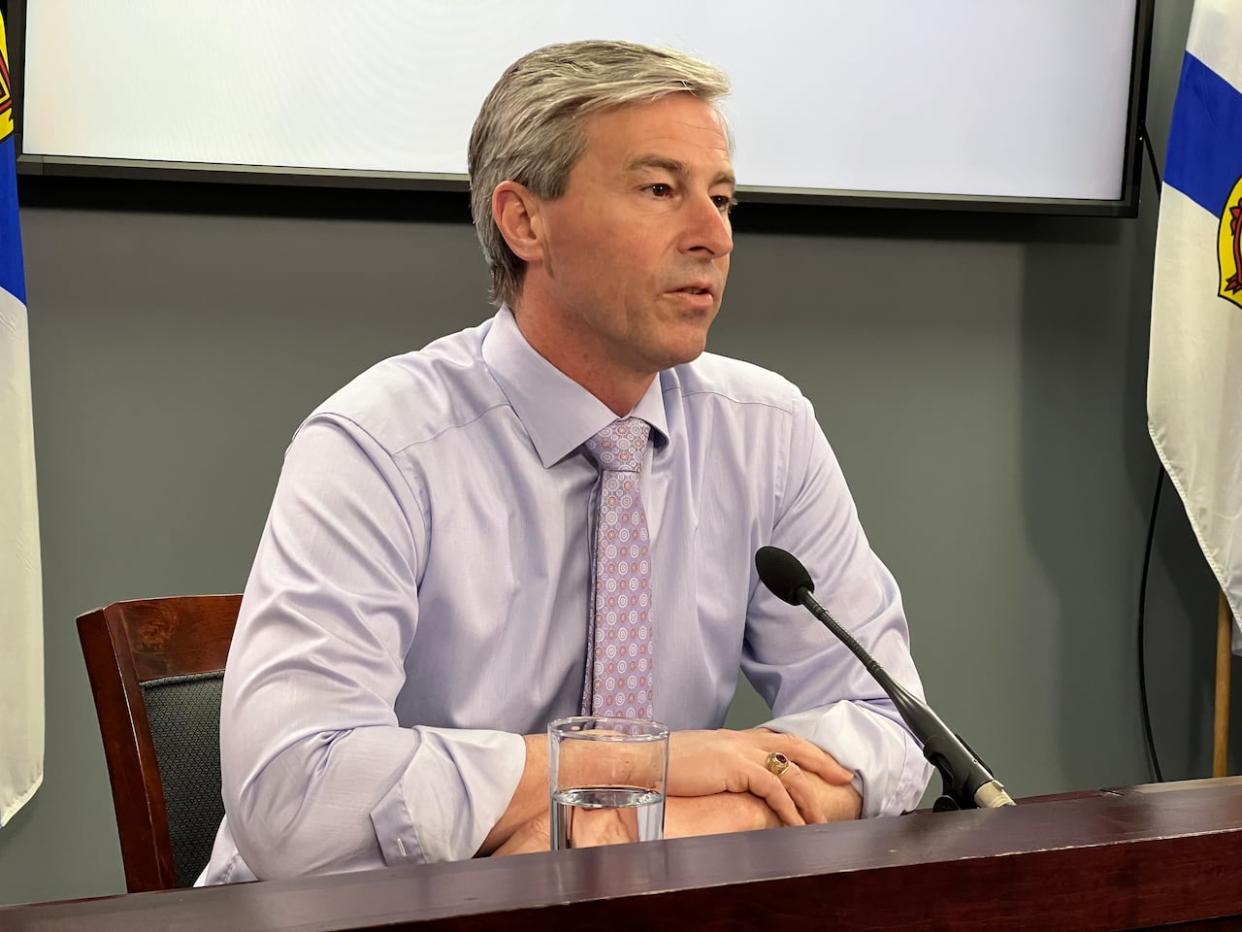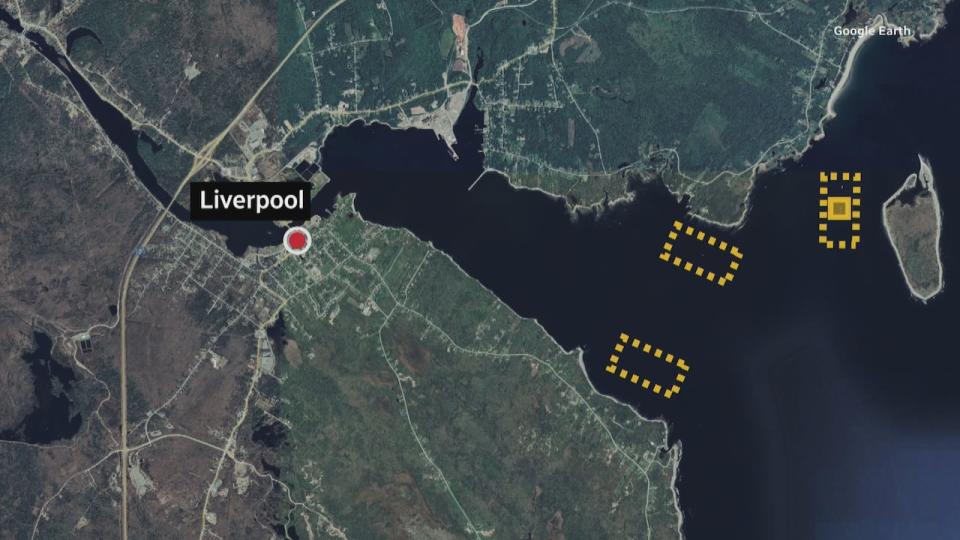Nova Scotia premier speaks out against Cooke Aquaculture salmon farm expansion

Opponents of the Cooke Aquaculture salmon farm expansion in Liverpool Bay got a morale boost this week from Nova Scotia Premier Tim Houston who says he is opposed to the controversial project which would triple the number of salmon in the area and add two more fish farm sites.
Houston added the final decision will come from an independent regulator hearing the merits next month.
"There's certainly a lot of people in Liverpool that are concerned about this. I respect their concerns and have heard their concerns," Houston told reporters Thursday in Halifax.
"While I think there's incredible opportunities for aquaculture in this province. It's my personal opinion that Liverpool Bay is not an appropriate place for that," Houston said.
Earlier this week he made similar remarks to a business luncheon in Liverpool attended by Progressive Conservative Queens MLA and cabinet minister Kim Masland, who opposes the project.
The local municipal government has also come out against the project.
Plan for 1.8-million salmon
Cooke subsidiary Kelly Cove Salmon Ltd. has applied to expand its existing fish farm at Coffin Island, and open two new ones at Brooklyn and Mersey Point in Queens County.
If approved, each site would contain 660,000 fish — a 370 per cent increase in the number of farmed salmon in Liverpool Bay.

Kelly Cove Salmon wants to increase the size of its existing fish farm at Coffin Island in Liverpool Bay, and add two more sites nearby at Mersey Point and Brooklyn. The current site and proposed sites are highlighted in yellow. (CBC News)
It's the first new salmon farm proposed in Nova Scotia in many years and the first one to come before the quasi-judicial Aquaculture Review Board (ARB) created in 2015 to enhance public confidence in decisions around aquaculture.
Houston was clear the outcome of the Liverpool Bay application is not in his hands.
"The independent board will make their decision. But, for me I just think when you look at ... some are appropriate, some aren't and I just think that would lean more on the not appropriate," he said.
Cooke responds to Houston
The premier's opinion isn't stopping Cooke.
In a statement to CBC News, Cooke spokesperson Claire Ryan said the company has been working with provincial and federal regulators for several years to prepare its application.
"We appreciate that the premier respects the independent Nova Scotia Aquaculture Review Board process that was established by the provincial government, and we look forward to bringing this application forward to the ARB next month," Ryan said.
Opponents want hearings stopped.
Opponents are heartened by Houston's support.
"As the founder of Protect Liverpool Bay, I am pleased to hear the personal position of the premier," says Brian Muldoon.
"We strongly believe that the classification of all the bays in Nova Scotia needs to take place before any application gets decided on. We did put in a request for a moratorium on all applications that were in place in the fall of 2023," he says.
In 2014 the Doelle-Lahey report on aquaculture called for a classification system that rates coastal areas for suitability for aquaculture.
The province says it will reveal its classification map in March 2025.
MORE TOP STORIES

